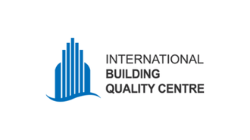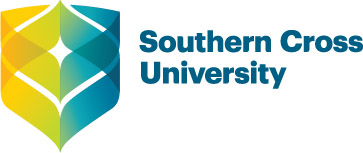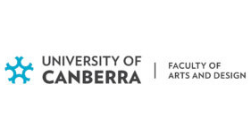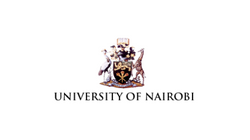
IBQC Global Construction Dispute Resolution Conference
How to improve affordability and accessibility to construction dispute resolution – a global thought leadership conference
Some of the world’s most distinguished senior jurists, leading construction lawyers, economists, and urban planners delve into ways by which construction dispute resolution theatres and processes can rein in dispute resolution costs to provide better efficiencies and superior access to justice for the global citizen.
Select speakers address the IBQC – Good Practice Guidelines for the Development of Construction Dispute Resolution Tribunals and Decision-Making Institutions that were compiled by a multinational IBQC coalition of senior jurists. The guidelines are curated to provide insights into ways by which dispute resolution costs can be reduced and dispute resolution processes can be expedited to improve outcomes for property owners, government (as a large property owner) and the building industry.
The conference was hosted by the International Code Council (ICC) and the International Building Quality Centre (IBQC) along with a co-sponsorship from The New Zealand Society of Construction Law.
The International Code Council is a global provider of building safety solutions. ICC’s model building codes and standards are used throughout the world and its conformity assessment, training, credentialing and specialty consulting solutions are leveraged by global jurisdictions to enable the effective implementation and enforcement of their building regulations.
The IBQC is the international thought leadership hub on the development of best practice building regulatory policy guidelines.
The IBQC held it’s global conference on ways by which construction dispute resolution can be made more affordable in September 2023. There were two sessions; one for the northern hemisphere and one for the southern hemisphere. 18 preeminent international speakers addressed the conference ranging from senior jurists from Africa, the United Kingdom and Australia, to senior construction lawyers and senior economists. Further below are the links to the two conferences videos, and individual and combined PowerPoints used during each session. Even though the second conference was more emerging economy centric, both sessions should be viewed to arrive at the full picture.
Some key take-outs
Construction dispute resolution is incredibly expensive and is beyond the reach of many citizens, not only in emerging economies but increasingly in developed economies. The time taken for the resolution of building disputes is onerous.
Neither the time involved in the resolution of construction disputes nor the cost of resolution of same can be sustained from the perspective of providing suitable access to justice to the local and global citizen.
As the construction industry is such a huge global industry it can ill-afford a cost imposition of the magnitude of trend.
An inability of an emerging economy to establish robust dispute resolution systems can negatively impact upon offshore investor appetite in light of the secure access to effective dispensation of justice.
On a positive note
The speakers were able to proffer a variety of ways by which construction dispute resolution processes can be made far more efficient.
The overall costs of construction dispute resolution could be reined in significantly by way of mandating:
- Best practice ADR mechanisms
- The deployment of single expert witness interventions
- Convergent dispute resolution mechanisms
- Dispute avoidance regimes.
- Culturally contextualised dispute resolution systems.
See below for some key statements from the conference:
The Honourable Brian Preston FRSN SC: “The overriding purpose is to facilitate the just, quick and cheap resolution of the real issues involved in the dispute. This involves differential case management – tailoring the case management directions to fit the individual dispute.”
Dr Richard Manly KC: “One of the general duties or paramount objectives that an arbitral tribunal or judge should observe at all times is to adopt procedures suitable to the circumstances of the dispute, avoiding unnecessary delay or expense, so as to provide a fair and efficient means for the final resolution of the dispute in question.”
Her Honour Judge Sharon Burchell, County Court of Victoria: “Litigants appearing in the Victorian County Court have benefitted greatly from this shift away from individual experts, as judges are able to deliver judgments quicker, trials are shorter, settlement is more probable, and the process leading up to trial is more efficient.”
Alejandro Espinosa-Wang: “Action to be considered by policy makers in emerging economies moving forward: expand and improve commercial courts’ construction law expertise through judge training, promote alternative dispute resolution methods like mediation and arbitration, and establish specialized construction dispute resolution forums with industry experts.”
Her Honour Francis Kirkham CBE: “It is vital that the state accept the concept of arbitrator immunity for genuine support of the arbitration process.”
Martin Burns BA (Hons) LL.B (Hons) Barrister RICS: “The conflict avoidance pledge commits signatories to adopt early intervention techniques throughout the supply chain to try to avoid, manage and/or resolve issues before they escalate into disputes, identify potential disputes early and use conflict avoidance measures in practice, and work with the industry to identify, promote, and use these mechanisms.”
Adjunct Professor Kim Lovegrove MSE RML: “As a synopsis of reasons why some of the lessons learnt over the last 2 days should gain attention. A less than optimal system:
-works against utilitarian outcomes in terms of legal proceedings. -can by and large destroy commercial relationships and contracting relations. -leads to divergent rather than convergent outcomes.”
The reader is encouraged to use the video conferences as a resource with respect to divining ways by which construction dispute resolution can be made more accessible to the local and global citizen. A phenomenal amount of time and work went into the conference along with a very rare concentration of global experts from such diverse and pan jurisdictional backgrounds.
Presentations from Session 1
September 12, 2023 | 8am GMT
3am Washington, 10am Nairobi, 8am London, 5pm Melbourne

The current challenges and the opportunities for improvement of dispute resolution systems
The Honourable Brian Preston FRSN SC, Chief Judge Land and Environment Court, NSW, Australia
Insights on: How to improve Construction Dispute Resolution systems
A global perspective on ways by which construction dispute resolution systems can improve, derived from insights learnt by law reform deployments in Japan, Africa and China.
Adjunct Professor Kim Lovegrove MSE RML
Best ways to reform Construction Dispute Resolution
The IBQC Guidelines – A summary of the guidelines, why they were created and how they will help reforming jurisdictions intent on achieving better construction dispute resolution outcomes.
Phillip Greenham
How mediation can deliver individualised justice in an emerging economy context.
Gideon Westhuizen
Improvements in Core Duties of Expert Witnesses
The case for improved expert witness rigour and accreditation protocols.
Professor Robert Whittaker AM
How to Fast-track Construction Dispute Resolution (Supplemental Paper)
Best practice interlocutory logistics to fast track the dispute resolution journey.
Dr Richard Manly KC
Experts in Your Courtroom (Video Presentation)(Presentation Slides)
Promoting settlement, saving time and getting the best evidence by appointing Single Joint Experts.
Her Honour Judge Burchell, County Court Judge, Victoria, Australia
The Necessity for Stronger Institutions
The need for specialist construction dispute resolution tribunals.
Mark Colthart FCIArb/p>
Why did Arbitration Lose its Relevance in Residential Dispute Resolution in Australia?
Justin Cotton, Lovegrove and Cotton Construction and Planning Lawyers Australia
Presentations from Session 2
September 13, 2023 | 5pm GMT
Noon Washington, 5pm London, 7pm Nairobi, Sep. 14, 2am Melbourne
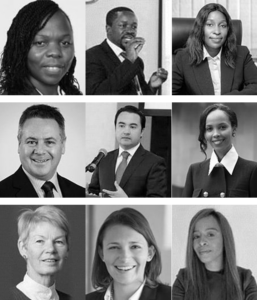
An Overview of the Law Addressing Construction Disputes in Malawi: The Pros and Cons
Her Honour Judge Gloria Kalebe Namonde
Tsigereda Lovegrove , Lovegrove and Cotton Construction and Planning Lawyers Australia
Insights on: Arbitration as a Forum for Construction Dispute Resolution
Raechel Keay Kummer, Partner, Commercial and Appellate Litigation, Morgan Lewis, United States
Zama Ngcobo, South African Construction Lawyer and Prof Alfred Omenya
Alejandro Espinosa-Wang, Senior Private Sector Specialist, World Bank
Martin Burns BA (Hons) LL.B (Hons) Barrister RICS, Head of ADR Research and Development
Challenges Facing Arbitration and Ideas on How to Make Arbitration More Accessible
Her Honour Frances Kirkham CBE

